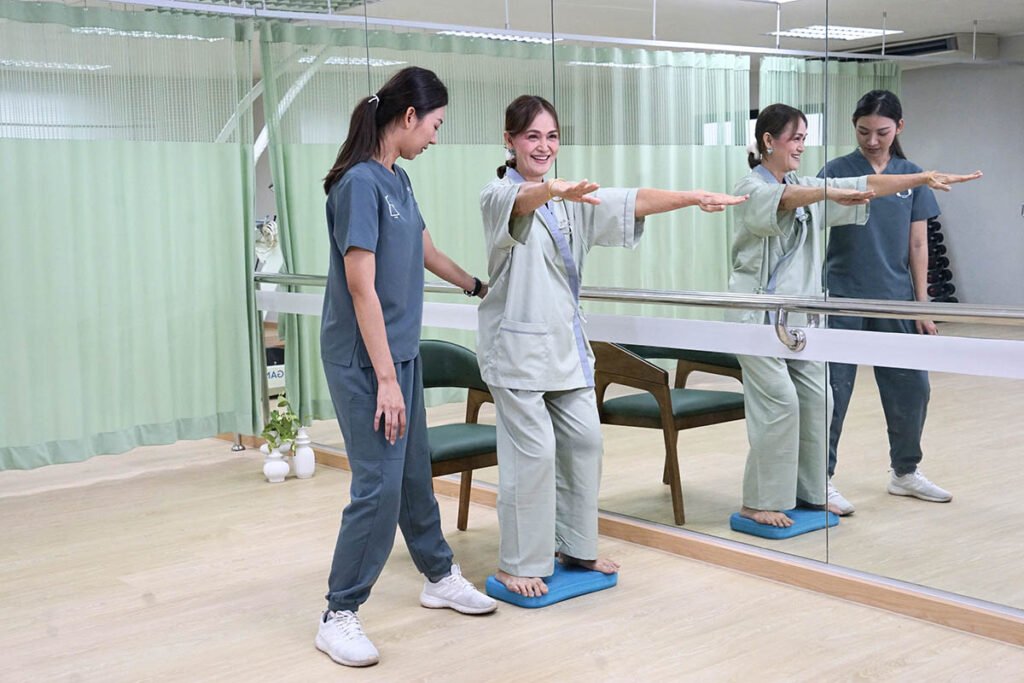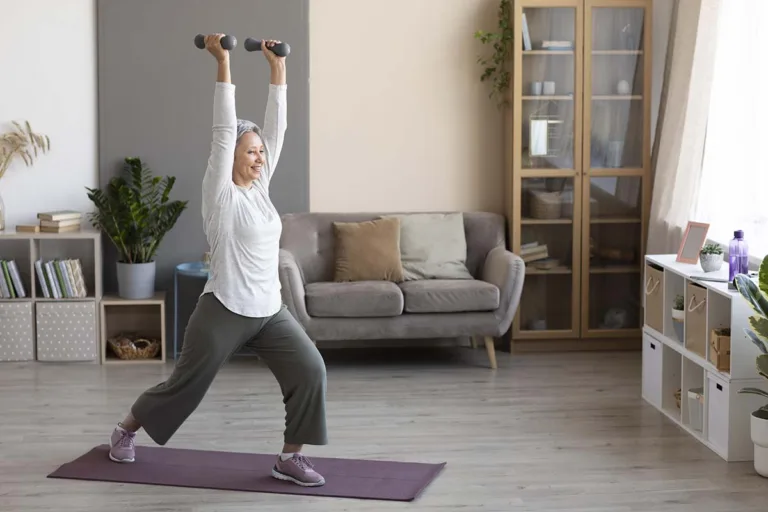Staying active as you get older is essential for a healthy and happy life. Elderly exercise at Greenbell Clinic is designed to keep your body moving and improve strength and flexibility. These exercises are gentle, fun, and tailored to suit your abilities. Think of it as a way to maintain your independence and enjoy life more. Whether it’s simple stretches or light walks, our elderly exercise programs are designed to help you stay fit and feel good. Come join us at Greenbell Clinic and discover how staying active can be both beneficial and enjoyable as you age.

What is Elderly Exercise?
“Elderly exercise” typically refers to physical activities and fitness routines designed specifically for older individuals. Engaging in regular exercise is crucial for maintaining overall health and well-being in the elderly. It helps address various age-related challenges and offers numerous benefits.
Greenbell Medical Clinic offers elderly exercise through safe and enjoyable physical therapy programs. Our interventions aim to enhance strength, flexibility, and balance, promoting independence and an active lifestyle in the golden years.
Understanding the Condition
-
- Prevalence: Aging is associated with a natural decline in physical abilities, making exercise programs tailored for the elderly essential to maintain and improve overall health.
-
- Signs and Symptoms: Symptoms may include generalized weakness, reduced mobility, and an increased risk of falls. Elderly exercise programs aim to address these issues and promote independence.
-
- Complication: Lack of regular exercise in the elderly can contribute to a decline in functional abilities, an increased risk of falls, and potential complications related to sedentary lifestyles.
Benefits of Elderly Exercise
-
- Improved Cardiovascular Health: Regular exercise helps maintain a healthy heart, reducing the risk of heart disease and stroke.
-
- Enhanced Muscle Strength: Strength training preserves muscle mass, improves strength, and aids in activities of daily living.
-
- Better Bone Health: Weight-bearing exercises contribute to maintaining bone density, reducing the risk of osteoporosis and fractures.
-
- Improved Balance and Coordination: Balance exercises enhance stability, reducing the risk of falls and injuries.
-
- Enhanced Flexibility: Stretching exercises maintain joint flexibility and reduce stiffness associated with aging.
-
- Weight Management: Regular physical activity helps control weight, reducing the risk of obesity-related conditions.
-
- Mood and Mental Health: Exercise releases endorphins, improving mood, reducing stress, and enhancing overall mental well-being.
-
- Social Engagement: Group exercise classes provide opportunities for social interaction, reducing feelings of isolation.

Service and Treatment
It’s important for older individuals to consult with the physiotherapist before starting a new exercise program, especially if they have underlying health conditions. Tailoring exercise routines to individual needs and abilities is key to ensuring safety and maximizing the benefits of elderly exercise.
Our specialized exercise programs for seniors aim to improve cardiovascular fitness, strength, flexibility, and balance while creating a welcoming social atmosphere. Our skilled physiotherapists design safe and enjoyable routines to enhance independence, mobility, and overall well-being during the golden years. By incorporating a healthy social platform, we ensure that every exercise session is not just beneficial for physical health but also an enjoyable opportunity for social connection.
FAQ
Why is exercise important for the elderly population?
Exercise is crucial for the elderly as it helps maintain mobility, balance, and overall health. Regular exercise reduces the risk of falls, improves cardiovascular health, and enhances the ability to perform daily activities.
What types of exercises are suitable for elderly individuals?
Suitable exercises for the elderly include low-impact activities like walking, swimming, and gentle strength training. Balance exercises and flexibility training are also essential components of a well-rounded exercise routine.
Can elderly individuals start exercising if they have existing health conditions?
In many cases, yes. However, it’s important to consult with a physiotherapist or healthcare provider to develop a personalized exercise plan that considers existing health conditions and ensures safety.
How can exercise help with joint pain and stiffness in the elderly?
: Regular exercise helps lubricate joints, maintain flexibility, and strengthen supporting muscles, reducing joint pain and stiffness. A physiotherapist can recommend specific exercises tailored to individual needs.
Is it too late to start exercising for the elderly who have been sedentary for many years?
It’s never too late to start exercising. Even individuals who have been sedentary can benefit from a gradual introduction to exercise, focusing on activities that match their abilities and health status.
Can physiotherapy help improve balance and prevent falls in the elderly?
Yes, physiotherapy is instrumental in improving balance through specific exercises targeting strength, coordination, and stability. Fall prevention programs are designed to reduce the risk of falls in the elderly.
How often should elderly individuals exercise, and for how long?
The frequency and duration of exercise depend on individual health and fitness levels. Generally, older adults should aim for at least 150 minutes of moderate-intensity aerobic exercise per week, along with strength training exercises on two or more days.
Can exercise help improve cognitive function in the elderly?
Yes, exercise has been linked to improved cognitive function and a reduced risk of cognitive decline in the elderly. Aerobic activities and activities that challenge the brain, such as dancing or puzzles, are particularly beneficial.
Are there specific considerations for elderly individuals with osteoporosis or arthritis?
Yes, physiotherapists can tailor exercise programs for individuals with osteoporosis or arthritis, emphasizing low-impact activities, strength training, and flexibility exercises to manage symptoms and improve overall function.
How can elderly individuals stay motivated to exercise regularly?
Staying motivated involves finding enjoyable activities, setting realistic goals, and incorporating social aspects like group exercise classes. A physiotherapist can help create a personalized and enjoyable exercise routine that aligns with individual interests and capabilities.








